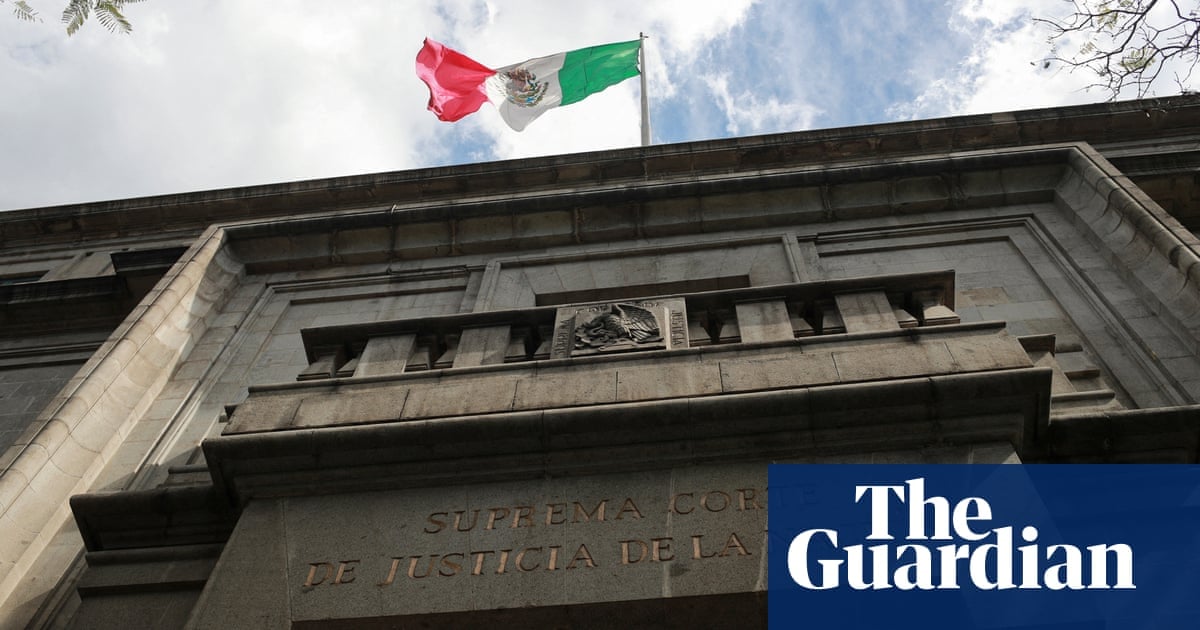Eight of the country’s 11 supreme court judges will stand down over reforms supported by President Claudia Sheinbaum
Eight of Mexico’s 11 supreme court judges have submitted their resignations after controversial judicial reforms, the top court has said.
In a move that has sparked diplomatic tensions and opposition street protests, Mexico is set to become the world’s only country to allow voters to choose all judges, at every level, starting next year.
The eight justices – including president Norma Pina – declined to stand for election in June 2025, a statement said, adding that one of the resignations would take effect in November and the rest next August.
The announcement came as the supreme court prepares to consider a proposal to invalidate the election of judges and magistrates. President Claudia Sheinbaum, however, has said that the court lacks the authority to reverse a constitutional reform approved by congress.



Despite the obvious common root in “populism” and “popular”, I don’t think that’s a fair “nutshell” description of populism at all.
The central core of populism is opposition to an elite ruling class. Right wing populism tends to attack education and expertise which does fit loosely with your description, but left wing populism is more focused on wealthy elites. Wealth has always been a terrible proxy for merit or the ability to rule.
To be against populism you either have to disagree that we are largely ruled by a class of elites, or think that being ruled by elites is not a bad thing. Anyone that thinks elites are not in control of the economy and political system in the US is borderline delusional. Anyone who thinks the elites got there by merit need to learn a lot more about figures like Elon Musk, Trump, or the Clintons.
Well I was not even focused on the USA in my reasoning of why in Mexico it is a bad thing to extend the democratic process to the election judicial branch of government or generally every decision to the public.
The USA has issues in their democratic elections, gerrymandering in certain states being one, the electoral college giving most or all the electoral votes to the winner and not a portion in relation to votes, propaganda being openly discussed on “entertainment” news channels. Then there is even lobbying that is allowed, politicians being able to buy and sell stock based on insider information, paid speaking events.
And the ruling by elites will in any system be an issue, even oppression by the majority can be an issue, that is usually why you have a good constitution, that lays the foundation of how government should work, the different spheres and how it should protect the most vulnerable in society. It has mechanisms to protect against an interest group gaining power to basically twist the system to their will and finally the last resort is the democratic vote of the people to ensure accountability.
After these mechanisms have failed there is no pretty answer on how to easily get back to a fair system. In my country South Africa, where we had a system that disenfranchised the majority of the population, I am glad that we had a bloodless coup d’etat and now we have one of the most progressive constitutions in the world, but even that wasn’t enough again from a connected small majority from almost ruling the country. Luckily in our last election, in the first time in 30 years the ruling party lost their majority and now we have a 10+ party coalition ruling majority government, and in my opinion things are going good, but we know how fragile our democracy is and try to be as engaged as citizens can be.